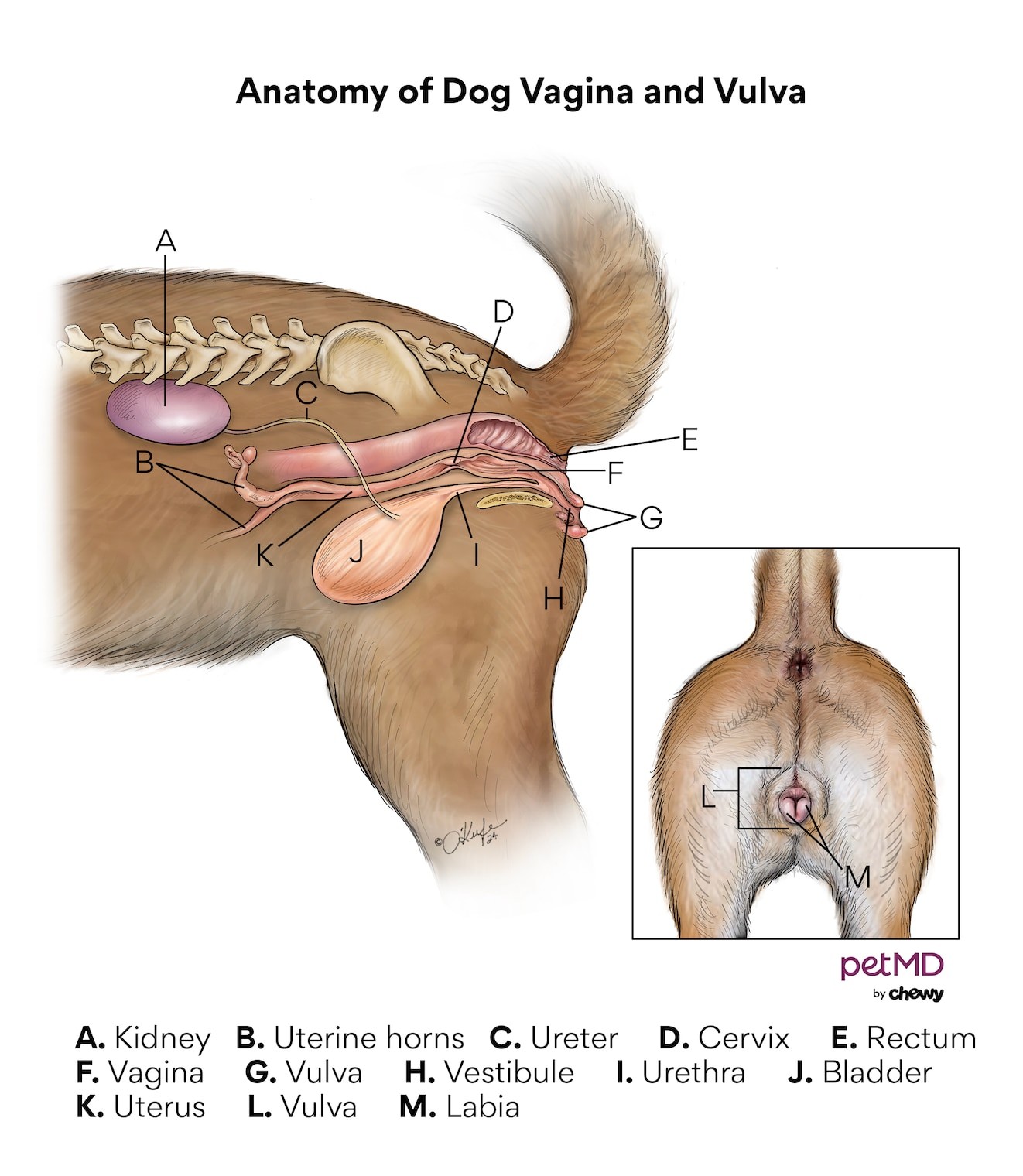Excessive licking of the genital area in female dogs can be concerning for pet owners. While occasional licking is normal for hygiene, frequent or intense licking can indicate underlying health issues. This article explores the potential reasons why your dog might be excessively licking her privates and when to seek veterinary attention.
Understanding Normal vs. Excessive Licking
Dogs naturally groom themselves, including licking their genitals to clean the area. However, if you notice your dog licking her privates excessively, to the point of redness, irritation, or hair loss, it’s crucial to investigate the cause. A good rule of thumb is if the licking seems obsessive or interferes with your dog’s normal activities, it’s time to consult a vet.
Common Causes of Excessive Genital Licking in Female Dogs
Several factors can contribute to a dog’s excessive licking of her privates:
Infections
- Vaginitis: Inflammation of the vagina, often caused by bacteria or yeast, can lead to itching and discomfort, prompting excessive licking. Symptoms may include a foul-smelling discharge.
- Urinary Tract Infections (UTIs): UTIs can cause irritation and increased urination, leading to licking in an attempt to soothe the area.
Allergies and Irritations
- Environmental Allergies: Allergies to pollen, grass, or other environmental factors can cause skin irritation and itching, including in the genital area.
- Contact Allergies: Certain materials, such as fabrics or cleaning products, can trigger allergic reactions and lead to licking.
- Parasites: Fleas, ticks, and mites can infest the genital area, causing intense itching and licking.
Hormonal Imbalances
- Heat Cycles: While some vulvar swelling and discharge are normal during a heat cycle, excessive licking could indicate an infection or other issue.
- Ovarian Remnant Syndrome: In spayed females, a small piece of ovarian tissue left behind can cause hormonal imbalances and lead to increased licking.
Injuries and Foreign Bodies
- Trauma: Injuries to the vulva or surrounding area, such as cuts or abrasions, can cause pain and irritation, prompting licking.
- Foreign Bodies: Grass seeds, small objects, or matted hair can become lodged in the genital area, causing discomfort and leading to excessive licking.
Other Medical Conditions
- Vaginal Hyperplasia: This condition causes protruding tissue from the vulva and can be uncomfortable, leading to licking. While it often resolves after a heat cycle or spaying, it can sometimes require veterinary intervention.
- Vulvar Fold Dermatitis: Skin folds around the vulva can trap moisture and debris, leading to irritation and infection. Regular cleaning or, in severe cases, surgery may be necessary.
- Tumors: Although less common, tumors in the genital area can cause irritation and lead to excessive licking.
When to See a Veterinarian
If your dog is exhibiting any of the following symptoms in addition to excessive licking, consult a veterinarian immediately:
- Foul-smelling discharge from the vulva
- Redness, swelling, or inflammation of the vulva
- Difficulty urinating or straining to urinate
- Lethargy or loss of appetite
- Excessive thirst or increased water intake
- Pain or discomfort when touched near the genital area
Diagnosis and Treatment
A veterinarian will perform a physical examination and may recommend further diagnostic tests, such as:
- Vaginal Cytology: Microscopic examination of cells from the vagina to identify infections.
- Urinalysis: To detect UTIs or other urinary tract problems.
- Blood Tests: To assess overall health and rule out other medical conditions.
- Biopsy: In cases of suspected tumors or growths.
Treatment will depend on the underlying cause and may include:
- Antibiotics for bacterial infections
- Antifungal medications for yeast infections
- Anti-inflammatory medications to reduce swelling and pain
- Surgery to remove foreign bodies, tumors, or excess tissue
- Allergy medications or immunotherapy for allergies
 dog vagina: diagram of a dog
dog vagina: diagram of a dog
By understanding the potential causes of excessive genital licking in female dogs and seeking timely veterinary care, you can help ensure your furry companion’s health and well-being. Don’t hesitate to contact your veterinarian if you have any concerns about your dog’s behavior or health.